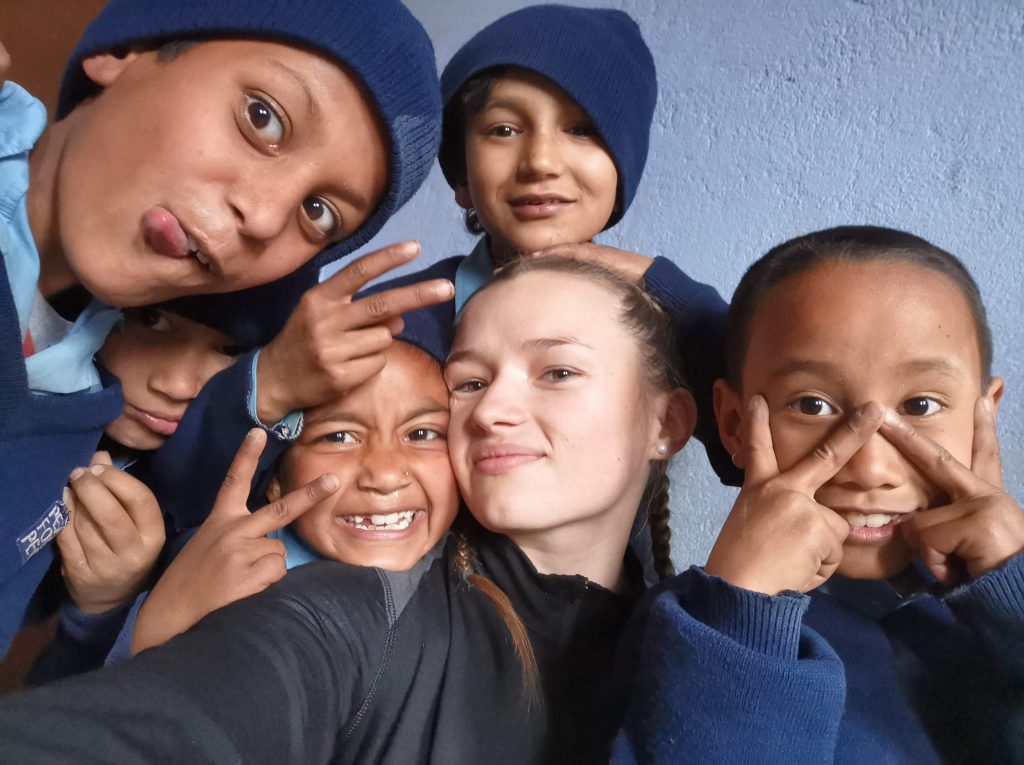Be Volunteer
Humanitarian Mission
Mission, in a literal term, means- an important assignment given to a person or group of people, typically involving travel abroad. However, the Humanity Mission that the 22 (20 French and 2 Dutch) people dreamed of was far beyond the feeling of compulsion and quite near the feeling of humanity. The mission, in which they spent some time in the rural area of Dhading (40 km far from the capital Kathmandu), brought a positive impact on the Nepali children studying in lower and lower secondary level of 6 different schools of Dhading and Kavre districts.
Nepal, which lies in the southern part of Asia, is a country of diverse cultures, arts, languages and ethnicity. Despite being rich in these aspects, Nepal lies under the category of Least Developed Countries (LDCs) in the world. One of the influencing factors for Nepal being the least developed country is its inability to provide quality education to every citizen. The geographical complexities of the country have made it very difficult to make quality education accessible to every nook and corner of the country. In recent years, there has been a significant development in the field of education in Nepal. However, there are still many children who are out of school, or unwilling to go to school.
Problems Faced by Nepali Children
- Nepali children are not happy with the unfriendly environment they are living in the schools.
- As the Nepali education system is characterized by rote learning, children are demotivated to attend classes and concentrate on their studies.
- Another crucial factor that is affecting the student dropout rates in Nepal is - a communication gap between the two associates viz. students and teachers.
- Besides, Nepali education system fails to make students imaginative, creative and visionary as the students are encouraged to learn through text-books only.
Mission
- To recognize the impact of Nepali culture and environment on the education of children.
- To identify the problems, needs and solutions of the Nepali education system
- To work closely with the children to understand their stories, desires and interests in order to create a friendly environment between the teachers and students.
- To promote a participatory education system with the help of various activities/tools like drama, music, sports, art and interactive games by changing the conventional reading culture.
- To encourage the teachers to play the role of a friend in front of the children considering their psychology.

Impact
By the time the activists completed their stay in those schools with the children, they could feel a sensation of warm connection with each other. The children were feeling more comfortable talking to them, sharing their ideas and opinions, and spending time with them than in the early days. Similarly, children were found to have been more active and participative in the learning workshops and sessions.
- Enhancement in the learning enthusiasm of children
- Better communication between the teachers and students
- Improvement in the creative and imaginative thinking of children
- Development of students participation in classrooms regularly

